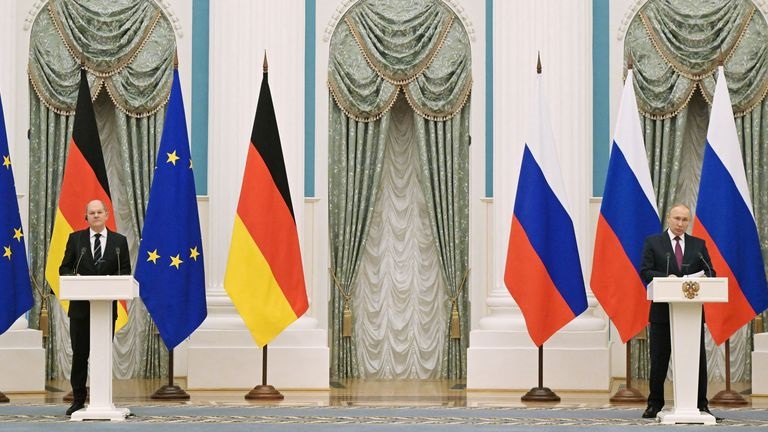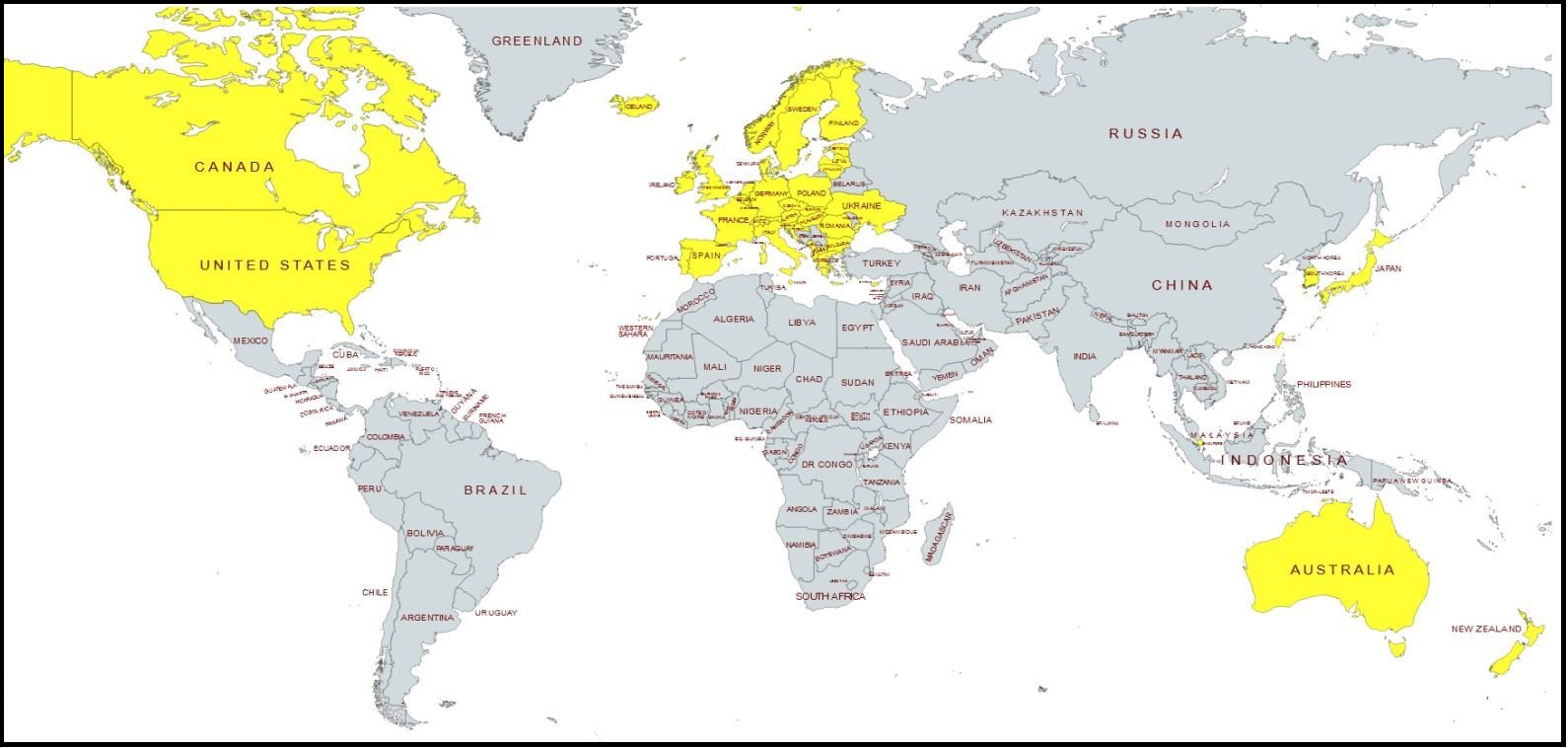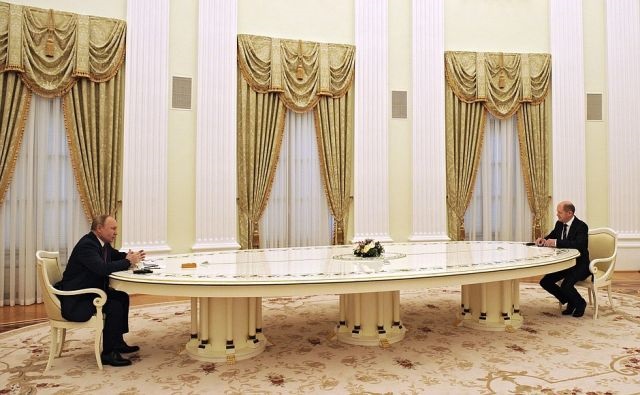Russian President Vladimir Putin and German Chancellor Olaf Scholz will hold further discussions on the purchase of Russian energy products in rubles according to TASS (Russian News) and western media. However, in the interim Russia will continue accepting payment in euros which will be exchanged for rubles by Gazprom bank.

(left) German Chancellor Olaf Scholz – (right) Russian President Vladimir Putin
The situation is ongoing, as an outcome of the G7 energy minister’s prior emergency meeting on Monday, where they demanded Russia continue accepting both euros and dollars for the payment of Russian gas and oil purchases. The current short-term resolution to continue accepting euros and dollars may not last long, as Russia is continuing to emphasize their demand that purchasing nations switch to rubles for future contracts.
Despite NATO, the G7 nations and western alliance agreeing to use economic and financial sanctions to block Russia from receiving dollars and euros. Inside the alliance, there appears to be a fear that if Russia is successful in creating a financial trade system based on rubles, the G7 may lose influence on energy policy via climate change.
Inside the western alliance, the geopolitical control mechanisms that use energy sector development are under stress. If global oil and gas is not exchanged in euros (European centric) or petrodollars (globally), the ability of the multinational agents to pressure climate change demands will be weakened.
The economic globalists need the oil/gas producing nations to stay linked to euros and dollars. The economic nationalists, who essentially generate most of the oil and gas that is used by the rest of the world, would be more favorable to a different form of currency for payment.
Thus, inside the western alliance that triggered the sanctions, there is a problem. That problem becomes a pressure point for Russia to exploit, which is exactly what Vladimir Putin is doing by asking for payment in rubles.
To try and support the western alliance political effort, the ideologically allied Ukrainian President Volodymyr Zelenskyy is now pushing “green energy” development. Getting the entire world economy realigned through the tool of energy development is the objective of the World Economic Forum (WEF) and climate change globalists within the sphere of international finance. The sticky issue remains with Europe dependent on Russia selling energy.
♦ WESTERN OUTLOOK – The Kremlin separately said in a statement on Wednesday that switching to ruble payments shouldn’t deteriorate contract terms for European importers of Russian gas.
Putin told Scholz that after European buyers make payments in euros to lender Gazprombank, it would convert the currency to rubles, German government spokesman Steffen Hebestreit said in a statement describing the call. (link)
♦ RUSSIAN OUTLOOK – Russia agrees to accept payments for gas from European partners in euros through Gazprombank, which will convert them into rubles. This statement was made on Wednesday by the representative of the German government Steffen Hebestreit following the results of telephone conversations between Russian President Vladimir Putin and German Chancellor Olaf Scholz.
[…] As previously reported by the press service of the Kremlin, Russian President Vladimir Putin and German Chancellor Olaf Scholz agreed that the transition to payment for Russian gas in rubles will be further discussed by experts of the two countries. It was noted that the decision should not lead to a deterioration in contractual conditions for European companies importing Russian gas. (link)
This stuff is extremely interesting, because the outcome of this trade exchange could seriously alter the course of history. Up to this point, the ‘globalists’ were overwhelmingly winning the geopolitical economic battles. However, there is a very real possibility the events of the last two years, in combination with the events within the Ukraine/Russia conflict, could end with a rise of economic nationalism.
When Canadian Prime Minster Justin Trudeau used a national emergency declaration to seize the bank accounts and financial assets of his political opposition, he triggered an awakening in citizens as they realized how the Canadian government could be weaponized against them. Regardless of what the future holds, that factual reference point will always exist.
When the western alliance triggered their economic and financial sanctions against Russia, again an example of seizing the banking and financial assets of their political opposition – albeit on a geopolitical scale, they too triggered a new awakening about the risks and vulnerabilities of being connected to a one-world-order system. That awakening is what is taking place right now.
In the Canadian example, people immediately started looking for ways to remain sovereign as a citizen and solvent as a person. In the NATO example, nations are now contemplating how to remain nationalist as a country, and solvent as an economy. Both intents and objectives hold similarities.
For the first time in decades, the globalists appear to be shaken and unsteady. The underlying premise of their assembly is in the spotlight, and that premise is not as appealing as it was. Simultaneously, for the first time in decades, the benefits of economic nationalism are being reevaluated and reassessed, and there is an increased appeal in the self-sufficiency of sovereignty. WATCH:
We live in very interesting times.
Carry on…


There is a big table between them.
